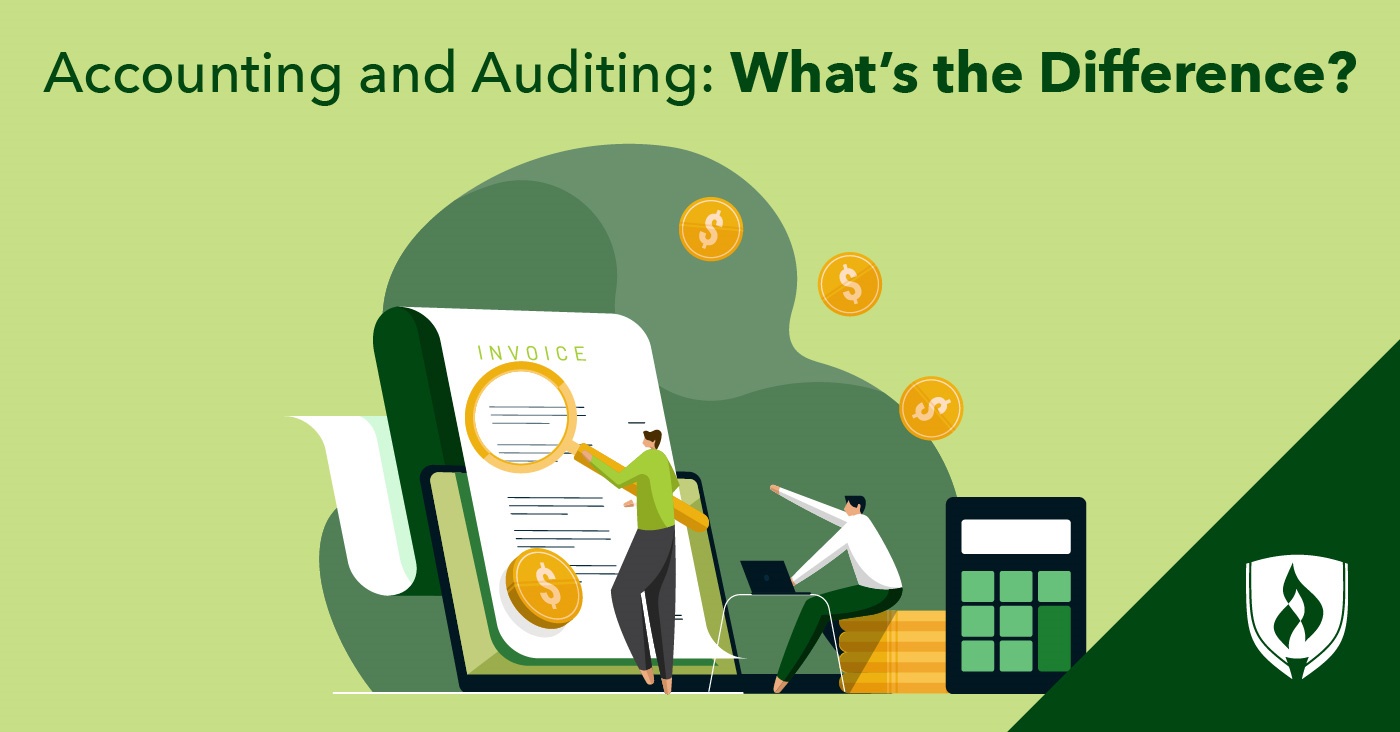
Are you detail-oriented and analytical? Do you enjoy working with numbers and data? Enjoy solving problems? If this is you, a career in accounting or auditing may be the perfect fit.
Accountants and auditors have a lot in common. They both typically have accounting degrees, cross paths at the same firms and make similar salaries. Both accounting and auditing roles are vital to keeping businesses functioning—without them, businesses would be operating practically in the dark and exposed to significant financial risks like fraud or a lack of sufficient cash on hand. With so much similarity and overlap, how do you know which financial career path is right for you, and what’s the difference between them?
Keep reading to find out what makes accounting and auditing unique.
What do accountants do?
Chances are you picture an accountant working at a desk, staring at a calculator or spreadsheet. While this image isn’t necessarily wrong, there are many accountants whose day-to-day looks quite different.
In principle, an accountant’s job is to track, record and analyze a company’s or individual’s money. This means keeping a journal of transactions, preparing financial statements, filing tax forms and much more.
Because there are so many different tasks that accountants do, many specialize in only one. There are a variety of career tracks open to accountants, including (but not limited to):
- Auditor
- Cost accountant
- Forensic accountant
- International accountant
- Nonprofit accountant
- Tax accountant
Each day, accountants may be meeting with clients, traveling to a job site, working in a team or—yes—sitting at a desk examining and updating spreadsheets.
What do auditors do?
While accounting can be a broad job, auditors have a more specific focus. Technically, an auditor is a type of accountant. Auditors are responsible for checking companies’ financial books and documentation for errors or fraud. This includes more than just math mistakes and overlooked transactions, though.
Auditors must know the various sets of rules for accounting, including the tax code and GAAP (generally accepted accounting principles), and when to apply each rule. Any publicly traded and regulated company—and many other businesses outside of that group—follow GAAP, as their books must be standardized to apply for loans or to be traded on the stock market. When international business enters the picture, the auditor may need to understand other accounting rules as appropriate to various countries or companies.
You might think accounting work is full of black-and-white clear answers, but there’s actually quite a bit of nuance to contend with. For example, the Internal Revenue Service (IRS®) has a specific system to calculate depreciation. Based on the type of item being depreciated, the IRS prescribes a depreciation timeline. Meanwhile, GAAP allows four different depreciation calculation methods, leaving the choice of which is most appropriate up to the business owner or accountant.
When auditors show up to a job site, they apply the appropriate set of accounting rules to ensure the company’s financials are compliant. They also verify the accuracy of a company’s books and financial statements. To do this, they compare various transaction documents to determine cash flows, revenue and expenses.
While accountants must also know all these rules and regulations, auditors are responsible for ensuring the accountant actually followed these procedures. An auditor’s job is important, as they keep companies’ financial statements truthful. The consequences of failing to do so can be immense—even some of the biggest companies of their time have crumbled because of unethical auditing practices.
How do I become an accountant or auditor?
Auditors and accountants have similar career paths. The standard entry-level education requirement is a bachelor’s degree. Accounting degrees include a variety of courses to prepare you for different career paths.
The biggest difference between becoming an accountant or auditor comes down to your choices. If you know you want to be an auditor, then focusing your time and coursework on auditing will help build that specific skill set. Another option to add to your qualifications is to apply for auditing internships.
However, if you want to be a different type of accountant, you can create career experience and qualifications with tax, international, cost and other accounting opportunities. Find internships or a mentor in your specialty to bolster your resume.
Where will accounting or auditing take you?
Despite the similarities between accounting and auditing, the career paths have distinct appeals. Auditors get to check the work of accountants and be a number detective, finding errors and potential fraud. Auditors keep companies and accountants honest. Meanwhile, accountants spend their days reporting on the revenues, expenses and cash flows of a company or helping an individual track their income. Both jobs are imperative to keep the business world running smoothly.
If you think one of these vital career paths sounds exciting, check out our article “Accounting Career Paths: The Number Cruncher’s Guide.”
IRS is a registered trademark of the Internal Revenue Service.




